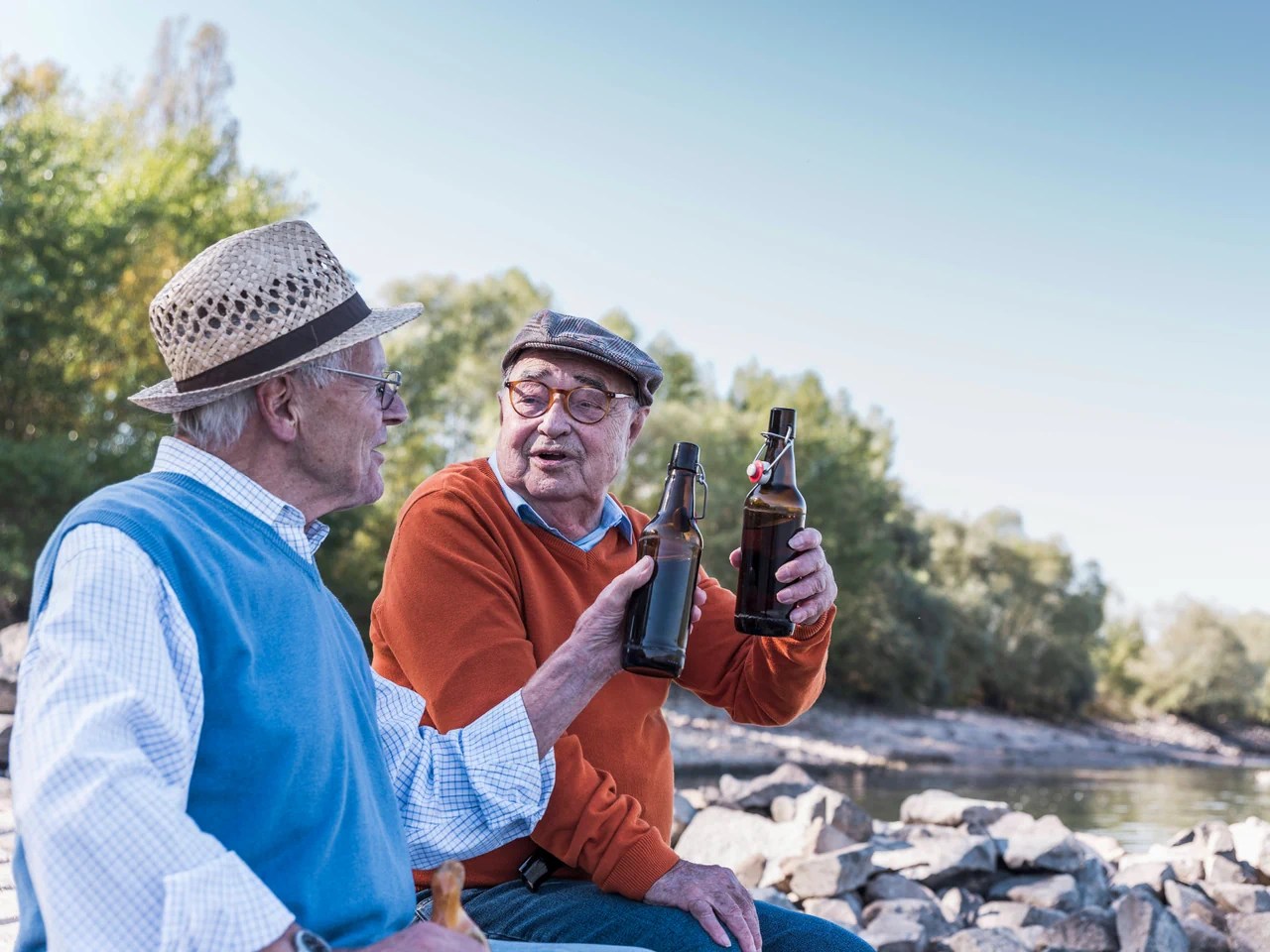Active seniors consume more alcohol, study finds

People over 60 who are physically active drink more alcohol than so-called ‘couch potatoes’ who prefer a more sedentary lifestyle. This is the surprising conclusion of an international study that included participants from Switzerland.
Physical activity is generally believed to have a positive impact on mental health, including helping to prevent or manage alcohol dependency. Which is why study author Stephan Listabarth and his research team were surprised to find that older adults who are physically active tend to drink more alcohol than those who do little or no exercise.
So why is this the case? Listabarth suggests several possible explanations: “People who are more physically active may also be more socially active, which in our society is often linked to alcohol consumption.” Another factor is what’s known as the compensation hypothesis: “People who drink more alcohol may consciously engage in physical activity to offset the negative effects.”
Health status may also play a role. People in poorer health are often less physically active and also consume less alcohol. However, the studyExternal link does not claim that being physically active causes people to drink more. “People don’t drink more because they do more sport,” says Listabarth.
Older people are drinking more
Beyond physical activity, the study also identified other factors associated with increased alcohol consumption: country of origin, education level and gender. Men, for instance, drink more alcohol than women. The study also found a link between alcohol use and perceived health status. “People who reported lower alcohol consumption felt subjectively less healthy,” Listabarth says.
Age itself is also a key factor. Swiss health data and various international studies show that older adults tend to drink more alcohol than younger people. “Alcohol dependence has increased among older people in recent years,” Listabarth notes.
He believes this could be linked to major life events such as retirement or bereavement, but also to broader demographic trends: “A generation is now growing old that had already developed problematic or dependent drinking patterns at an earlier age. Thanks to improvements in healthcare, this generation is also living longer than previous ones.”
Exercise doesn’t cancel out risky habits
The authors of the study stress that alcohol can be particularly harmful in old age. As Listabarth explains, older people generally metabolise alcohol more slowly: “Alcohol remains in the body for longer and accumulates. This can make its negative effects more severe than in younger individuals.”
Even though physically active older adults appear to drink more alcohol, Listabarth is not advising against exercise. Physical activity remains beneficial, particularly for conditions like dementia or cardiovascular disease. But problems arise when people assume that sport or exercise can fully offset risky behaviours. “Such compensation is not possible – at least not completely,” he concludes.
Translated from German using DeepL/amva

In compliance with the JTI standards
More: SWI swissinfo.ch certified by the Journalism Trust Initiative
You can find an overview of ongoing debates with our journalists here . Please join us!
If you want to start a conversation about a topic raised in this article or want to report factual errors, email us at english@swissinfo.ch.